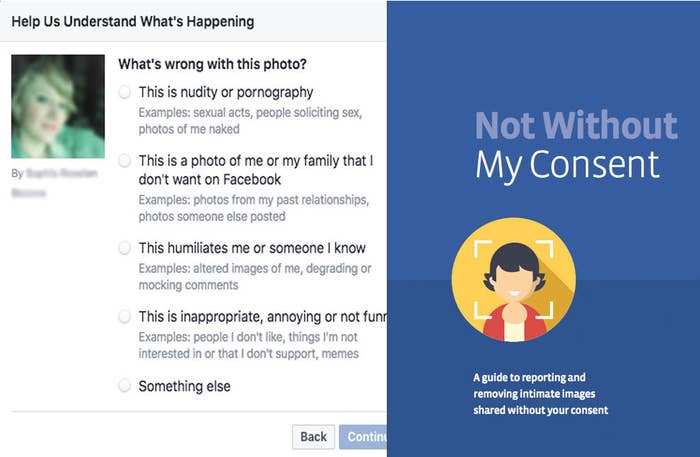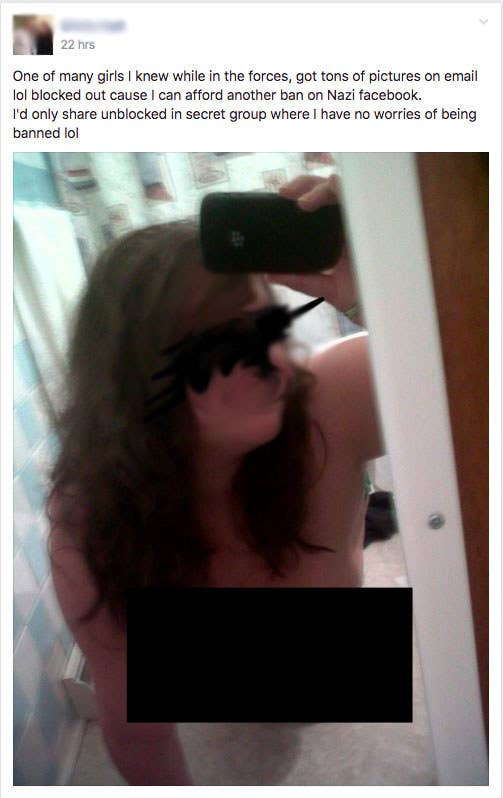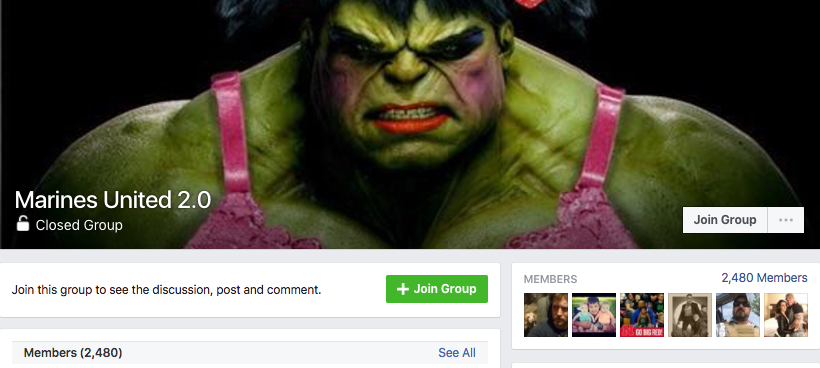
In the weeks after it was revealed that hundreds of Marines may have been involved in sharing revenge porn of their fellow women service members on Facebook, military leaders vowed accountability and advocates called for changing culture.
But on Facebook, at least, there was nothing to keep it from happening again.
On Wednesday, Facebook announced a set of new tools to combat revenge porn on its platform. The social network will still depend on users to report abuse — which could pose issues in closed or secret groups like the now-defunct Marines United, where thousands of members either took part in the photo sharing or simply scrolled past. But, Facebook said, once revenge porn is flagged, the platform is now better equipped to take it down and keep it from coming back.

"We look forward to building on these tools and working with other companies to explore how they could be used across the industry," the company's head of global safety Antigone Davis wrote in a blog post.
The new tools apply to Facebook, Instagram, and Facebook Messenger. They include:
- A new option for users to report that a photo was posted without permission
- Specially trained employees to review reported revenge porn
- Photo-matching technology to keep confirmed revenge porn images from being posted again
- A partnership with organizations that can provide resources to victims
The new tools specifically address some of the issues raised by Marines United. Last fall, a retired Marine named John Albert who was a member of the group reported it for posting nudity; there was no option to report it for posting revenge porn. Facebook notified him the group was taken down, but by March it was back with 30,000 members — some of whom were engaging in the same harassment and photo sharing that Albert believed he had stopped.

The photo-matching technology gets at the copycat groups that sprang up in the wake of the original private group. New groups, with names such as Marines United 2.0, were created to repost the original images, solicit new ones, and show defiance at the ongoing investigations by the military.
In most cases, accounts that post revenge porn will be deactivated, Davis said.
"If someone tries to share the image after it’s been reported and removed, we will alert them that it violates our policies and that we have stopped their attempt to share it," she wrote.
Facebook did not immediately answer a question on what types of exceptions there could be to that rule.
